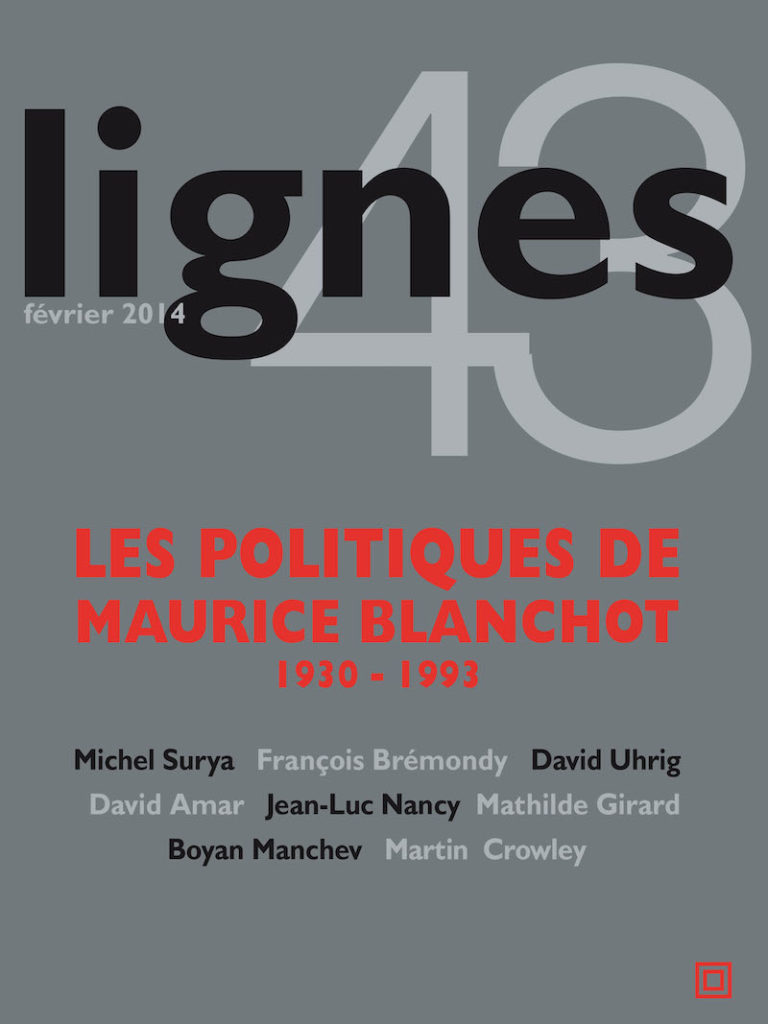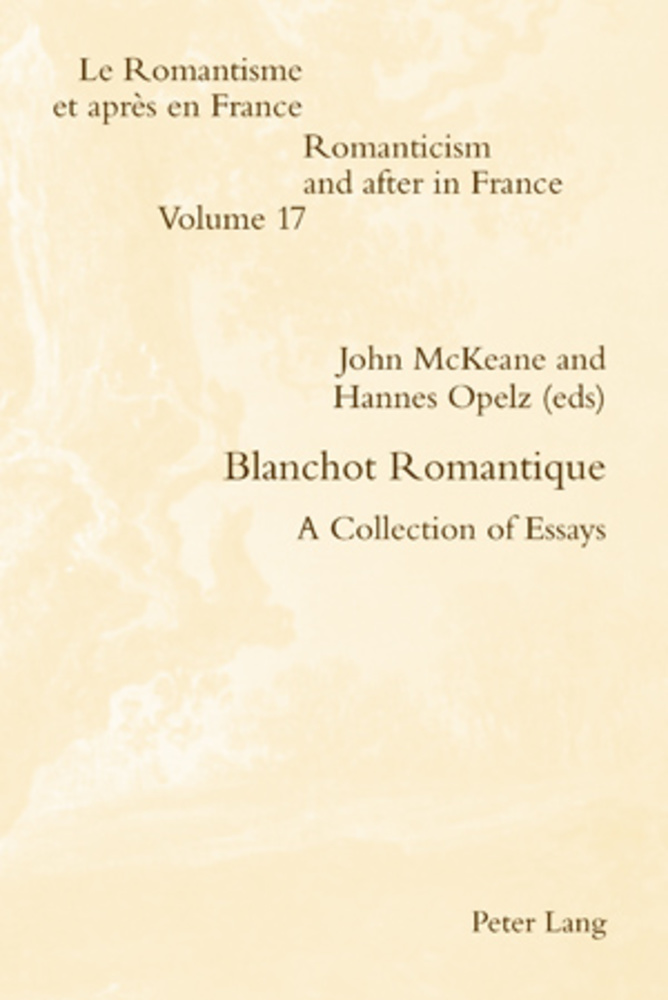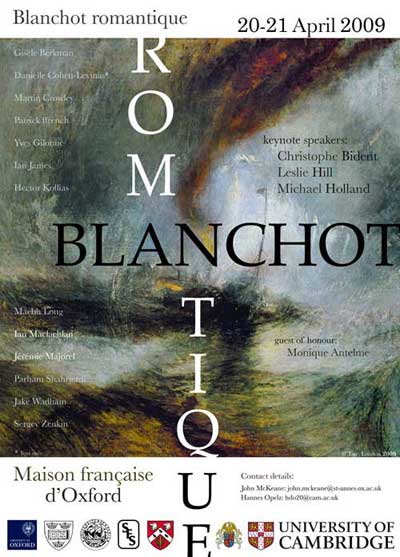« N’en déplaise. (Pour une pensée conséquente) »
Michael Holland
A propos de Lignes, n°43, mars 2014, « Les Politiques de Maurice Blanchot 1930-1993 », 240 pages :

[…] Quand on se retourne vers l’utilisation qui est faite du terme fascisme dans ces analyses, le basculement dans la morale est encore plus abrupt. M. Surya ne s’y attarde pas longtemps, étant plus intéressé, on l’a vu, par l’équivalence qu’il perçoit entre l’adhésion de Heidegger au national-socialisme et celle de Blanchot à ce qu’il dénomme « le nationalisme fascisant français » (p. 21). Et en conclusion de son étude il se sert d’une autre équivalence pour reléguer la question du fascisme au second plan : « Si on se demande en effet en quel sens et combien Blanchot fut ou ne fut pas fasciste, ce qu’il ne prétendit d’ailleurs pas, dans les années 1930, on ne se demande pas encore assez en quel sens et combien il fut ou ne fut pas communiste » (p. 60). Ainsi, s’il peut dénicher « une phrase […] incontestablement fasciste » (p. 38) dans un des textes de L’Insurgé, il affirme que « la question de savoir si Blanchot fut ou non “fasciste”, ou s’il fut “seulement” d’extrême-droite semble du coup superflue » (p. 38).
Read More …

